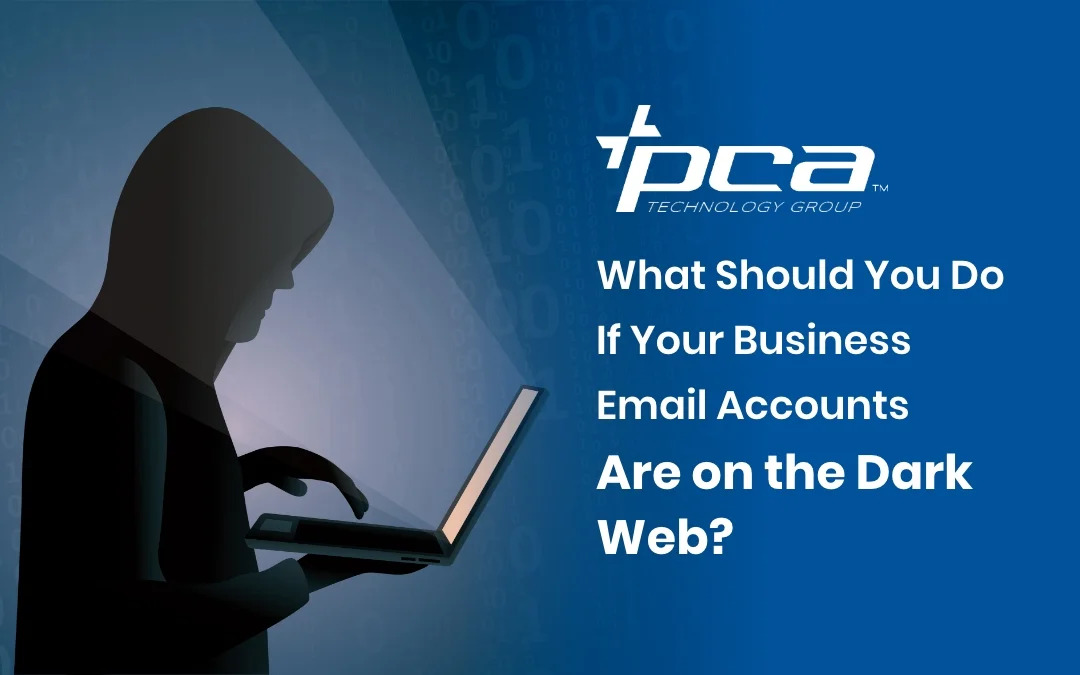Finding your business email address on the dark web can be deeply concerning, which is why it’s important to take swift action to mitigate potential risks and protect your business interests. But what exactly is the dark web, though, and why should you be concerned if your data ends up on it?
What Is the Dark Web?
The dark web is the side of the internet that cannot be accessed through traditional search engines and browsers. Its contents aren’t inherently malicious, and there are legitimate reasons for using it, such as maintaining privacy and anonymity.
However, due to its association with illegal activities and potential security risks, having your email address and other information floating on the dark web could spell trouble for your business. It might suggest that your email, or possibly associated information, has been compromised or exposed due to security breaches or leaks.
This situation warrants careful attention and prompt action to safeguard your business and personal interests.
What Are the Implications of Finding Your Data on the Dark Web?
If your business email address and data end up on the dark web, this could have serious implications that extend beyond the digital realm.
- Account hijacking – Hackers may use your email to compromise accounts linked to it and engage in fraudulent activities.
- Phishing and social engineering – Criminals can use your information to craft convincing phishing emails or launch targeted social engineering attacks.
- Identity theft – Stolen information can be used for identity theft, leading to financial losses and damage to your reputation.
- Reputational damage – The exposure of your business email could harm your professional image if it’s associated with illicit activities.
- Frequent spam and scams – Your email might become a target for spam, scams, and unwanted communications.
- Loss of privacy – The knowledge that your information is circulating in illicit online spaces can erode your sense of personal privacy.
How Should You Respond If Your Email Is on the Dark Web?
If you suspect that your email account and credentials have been compromised and posted on the dark web, you need to take the following steps to effectively handle the situation:
- Conduct dark web monitoring – Dark web monitoring is a service where cybersecurity companies try to find your email and sensitive information on the dark web. This will allow you to confirm whether cybercriminals have compromised or stolen your email address.
- Change passwords and enable two-factor authentication – Immediately change passwords, making sure they’re long and unique to each account. You should also enable two-factor authentication to add an extra layer of security. This will require you to provide a password as well as a one-time passcode generated from an authenticator app or a USB security key to log in to an account, making it incredibly difficult for hackers to hijack your accounts.
- Notify cybersecurity response team – Inform your security teams about the situation to coordinate efforts and minimize potential damage. Standard protocols for response teams should be to limit the email’s access privileges, restrict data sharing privileges, and reset passwords to contain the threat.
- Alert affected parties – If there’s a chance that your compromised email account could be used to defraud your clients and business partners, you need to warn these parties as soon as possible. Give them an official message about how the breach occurred and what has been done to manage the issue. You should also tell clients to be cautious of unsolicited emails that request for sensitive information.
- Monitor accounts – Watch for any suspicious activity in your accounts and set up alerts for any login activity.
- Educate employees – Strengthen your organization’s security posture by educating employees about keeping their data out of the dark web. These lessons may involve learning how to recognize phishing scams and employing password best practices.
- Review privacy policies and regulations – Familiarize yourself with data protection regulations and ensure your compliance with applicable laws.
- Consult with cybersecurity professionals – Depending on the severity, consulting cybersecurity experts can assist in thorough assessments and risk mitigation strategies.
- Implement strong security measures – Update security protocols across your organization, including email and network security, to prevent future breaches.
- Stay informed – Stay current with evolving cybersecurity trends to continually adapt and fortify your defense against emerging threats.
Proactive measures can make a substantial difference in minimizing the consequences of potential security breaches. If you’re seeking comprehensive cybersecurity solutions, look no further than PCA Technology. With a focus on protection, we offer specialized services, including biannual external scans, as part of our Managed Services Agreement. Contact PCA Technology today and fortify your business against emerging cyberthreats.


